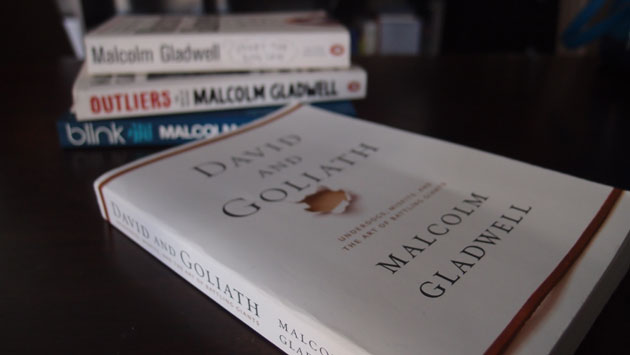What makes a genius?
What makes a genius stand out from the pack in a professional sports team, in classical music, in pop music, in Silicon Valley, in literature, in science, in anything? It’s a surprisingly simple formula according to Malcolm Gladwell in his book Outliers. It’s ten thousand hours of practise.
Outliers is a much more focused and thematically consistent novel by Gladwell compared to his other books What The Dog Saw and Blink which I eloquently describe to my friends as ‘a whole of bunch of interesting random shit thrown together.’ In Outliers, Gladwell critiques and studies genuises in their respective fields. He discusses the famous ones (Bill Gates, Steve Jobs, The Beatles) and the not so famous. In a sense, he seeks to demystify their accomplishments (without downplaying them) but analyzes how they came to excel in their respective fields.
His opening gambit is the ten thousand hours arguement. He explores various professional sporting codes and the highly competitive world of classical music and discovers that no one has blagged their way into being an incredible tennis star or a world class master pianist without putting the hours in. He seeks to absolve the nature versus nurture arguement. Gladwell firmly believes people aren’t born with it, they might just be born into a family that can support you doing nothing but it for thousands of hours at a time. The Beatles would play eight hours in a row, six days a week during their early years working nightclubs in Hamburg. A young Bill Gates had more time and access to computers in the early 1970s than almost anyone else in his generation. Modern day tennis stars such as Roger Federer are groomed from an exceptionally young age to excel at their sport.
Of course, if that was all Gladwell had to offer this would be a pretty repetitive book. But Gladwell offers his trademark insight into a number of industries and explores some interesting concepts. For example, most countries in the world unwittingly shortchange their talent pool for sports teams by dividing their players into age groups at a junior level. If a football academy in Europe trains juniors in September from the age of 6, there will naturally be a skew towards children who were born in September or October who have nearly a full year of development over a child born in August. And these children will continue to enjoy the benefits, extra attention and advantages right through their formative years. Gladwell’s analysis of a number of international football teams shows as much as eighty percent of the players are born within 3 months of the starting month of the season.
As with all of Gladwell’s books, I find Outliers easy to recommend. It is a breezy read, full of thoughtful ideas and critiques that are explained succinctly and are easy to digest. For me, the 10,000 hours idea has stayed in my head long after I put the book down. I see it pop up in the news every now and then. Most recently, it came to mind when Spain won Euro 2012, their third successive major football tournament. Seven players from the national squad ply their trade at Barcelona. The football club is renowned for its youth academy which has players practising football from a young age. The system is not particularly fussy about the player’s size, strength or speed. Instead they are interesting in honing the player’s tactical intelligence, mental speed and technique. By the time a player is old enough to play for the first squad, its expected that they will have thousands of hours of practise under their belt. 10,000 in fact.
 The FAT Website est. 1999
The FAT Website est. 1999





